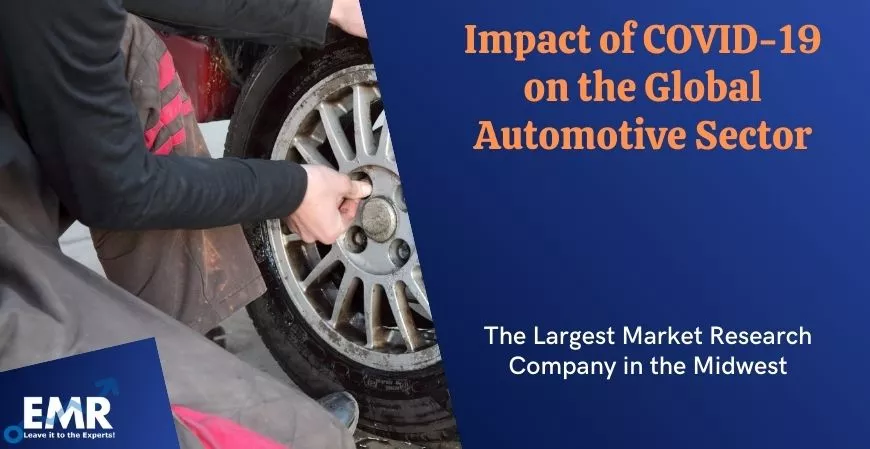This is putting a lot of pressure on an industry that is already dealing with a downturn in global demand, and it will most certainly lead to more merger and acquisition activity.
Global sales of passenger cars fell to 60.5 million units in 2020 from a peak of 79.6 million units in 2017, whereas March 2020 saw a 30% decrease in car sales compared to last year.
Automotive sales in Europe fell over 25% year on year in June 2020, with July buying activity still facing uncertainty due to market disruptions caused by the pandemic, according to industry consultants. In June, European Union (EU) registrations of new passenger cars reached a value of 949,722 units, a drop of 22.3% compared to the same month last year but a slight improvement over May 2020, which saw a drop of 52.3%. Over the first half of 2020, demand for new passenger cars in the European Union contracted 38.1%, the result of four consecutive months of unprecedented decline across the region.
Factory closures in Europe and North America resulted in the cancellation of millions of passenger vehicle production plans, resulting in a significant loss of revenue for the automobile and parts manufacturing industries. This has a negative economic impact due to backward and forward linkages, especially in countries where the automotive industry is a major driver of economic growth, such as Canada, China, Germany, India, Japan, the Republic of Korea, Mexico, Morocco, South Africa, and the United States. Small and medium-sized enterprises (SMEs), which employ the majority of the sector's workers and provide intermediate inputs and services to multinational automakers, were particularly hard hit.
The financial blaze had a significant impact on the automotive workforce, which bore the brunt of the financial crisis. To avoid industry-wide bankruptcy, many employees took pay cuts and accepted shorter work schedules, while others faced layoffs. While some employees have returned to work, and many more are expected to do so in the near future, a large number of employees are unlikely to receive a call to return to work. The shift to electrification was expected to result in a significant shift in employment needs, with mechanical engineers and roles tied to the powertrain being phased out and new positions for electrical, chemical, and software engineers being created. COVID-19 has now accelerated that process, causing the transfer of skill sets to occur sooner than anticipated.
The pandemic is estimated to have impacted around 42% of direct automotive manufacturing jobs in the European Union. The pandemic is expected to affect at least 150,000 unionised workers and hundreds of thousands of non-unionised workers in the industrial sector in the United States. Over the last quarter of the current fiscal year (2019-20) and the first quarter of the next fiscal year, disruptions in India's automotive industry and supply chain are expected to cost more than USD 800 million (2020-21).
Due to COVID's significant economic impact, automakers were forced to prioritise their capital projects, and autonomous vehicle (AV) technology took a back seat to other pressing advancements such as electric vehicles (EVs). Level 3 and 4 vehicle target dates, which had been set for as early as 2022, have been pushed back several years. Many companies have decided to abandon their autonomous vehicle programmes in favour of investing in electric vehicles. Volvo has pushed back its target date for presenting a fully autonomous Level 4 AV system from 2024 to 2027 and will now aim to present a Level 3 AV model around the same timeframe as they had originally planned for a Level 4. In addition, Argo and Ford have postponed their robo-taxi and autonomous vehicle programmes while investing an additional USD 28 billion in electric vehicles. When automakers were forced to choose between competing programmes, the realisation that AV technology and the obstacles it presents are more complex than previously expected also played a role. General Motors committed to ending the production of the traditional internal combustion engine (ICE) by 2035, and Jaguar and Volvo declared all of its vehicles would be electric powered by 2030.
The big news in the second quarter was a plan by Japan's Nissan to slash global vehicle production by 20% to 5.4 million units a year by the end of its 2023-2024 fiscal year (April-March).
COVID-19 also caused a drop in the use of robo-taxis and ridesharing technologies. Prior to the pandemic, many companies were investing in ridesharing and robo-taxi capabilities. However, as the need to social distance, sanitise, and protect the personal space became a safety and health priority, many consumers thought twice before turning to a ride-hailing program. In 2020, Uber lost USD 6.7 billion, and Lyft saw a decrease of USD 1.8 billion in revenue. Uber has responded by focusing its efforts on delivery services and selling off its autonomous vehicle and aerial taxi divisions, recognising the long-term implications. Another effect of the drop in demand for rides could be a slight increase in private vehicle ownership. Many consumers who previously relied on the shared economy have changed their minds and discovered the value in owning their own vehicle as a result of COVID-19 pandemic- an unexpected shift in previous trends.
According to the Society of Indian Automobile Manufacturers (SIAM), the automotive sector in India registered negative growth in sales of all vehicle categories in FY21: 2.24% decline in sales of passenger vehicles, 13.19% fall in sales of two-wheelers, 20.77% fall in sales of commercial vehicles, and 66.06% fall in sales of three-wheelers.
According to the Parliamentary Panel report, the estimated job loss in the Indian automobile sector stood at 3.45 lakh. Following a drop in car sales, Maruti Suzuki, India's largest automaker, reduced its temporary workforce by 6%. The auto industry, which once contributed more than 7% of India's GDP, is now in free fall, with some automakers reporting a year-on-year drop of more than 30% in recent months. Due to low demand and declining vehicle sales, all of the major original equipment manufacturers (OEMs) have reduced their production by 18-20%. According to SIAM, the production halt at automotive OEMs and component suppliers as a result of the COVID-19 pandemic and subsequent lockdowns cost the industry Rs 2,300 crore per day.
Vehicle output for April to June, which marked the first quarter of the Indian financial year, collapsed 79.4% year on year to 1.49 million vehicles, data from the Society of Indian Automobile Manufacturers showed. The same data also put monthly production at 1.09 million vehicles in June, nearly halved from 2.25 million vehicles made a year earlier.
Due to the COVID-19 pandemic, major automotive players such as Fiat Chrysler Automobiles, Ford, PSA Group, Volkswagen Group factories in Europe, Ducati, Tesla factory in California, BMW group European factories, Rolls-Royce, and General Motors have all halted production. The global spread of automotive manufacturers' supply chains is one of the major contributors to this market decline. At the start of the outbreak, many automotive parts suppliers outside of Hubei halted production, effectively halting the supply of auto parts from China. Even though the companies have resumed production at a reduced rate, they are experiencing a shortage of orders from manufacturers in other regions and logistical issues. With the shift of epicentre of COVID-19 outbreak from China to Europe and the United States, its impact on the automotive sector will take an extended time to correct.
According to consulting firm AlixPartners, the ongoing semiconductor chip shortage will cost the global automotive industry USD 110 billion in revenue in 2021. The shortage in the United States has prompted the Biden administration to order a 100-day review of the country's supply chains. Due to the chip shortage, automakers such as Ford and General Motors expect massive earnings cuts this year. Ford expects a USD 2.5 billion loss in 2021 as a result of the chip shortage, while GM expects a loss of USD 1.5 billion to USD 2 billion as a result of the shortage.
Since the pandemic broke out in Europe, Germany, and Spain have reported the highest production losses in the automotive industry. The drop in productivity, which was followed by a disruption in the automotive supply chain and the closure of manufacturing plants, has had a significant impact on new-car demand, supply, and registrations. New car registrations in the European markets have dropped significantly, with Germany, Italy, Spain, the United Kingdom, and France reporting significant drops.
Companies like General Motors, Ford, Volvo, Jaguar, Volkswagen, Toyota, Nissan, etc., have either temporarily resumed their car production or closed their plants since the start of the pandemic. Such a crisis has affected the automotive business badly, and most of the companies are running on losses. COVID-19 has affected the economy of the automotive industry severely and the sector may take some time to improve.
There are signs of recovery in Europe's auto sector, which has been supporting hot-rolled coil prices. But in the United States, the rebound is less evident. Steelmakers have been lifting capacity utilisation rates back to around 60%, but downstream demand remains affected by the pandemic, which is still severe in certain states. China's manufacturing sector, including auto output, continued to improve in July. While month-on-month increases are expected over the third quarter, year-on-year comparisons are likely to show declines amid market concerns about the prolonged impact of the coronavirus. Weak domestic demand has led Indian steelmakers to boost their exports, especially to China, amid doubts about whether the latter can sustain its buying spree. A positive monsoon, strong rural demand and the availability of finance are all indicators of a good economic recovery and buoyant demand going forward. The country's second-largest carmaker Hyundai Motor India Ltd (HMIL), is also hopeful of some economic recovery taking place in India next year, which in turn would aid the auto industry and could clearly spot some green shoots of recovery in 2021. A V-shaped recovery of the economy in India is expected, thereby helping the industry to bounce back.




















Share